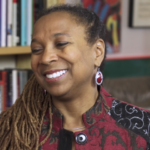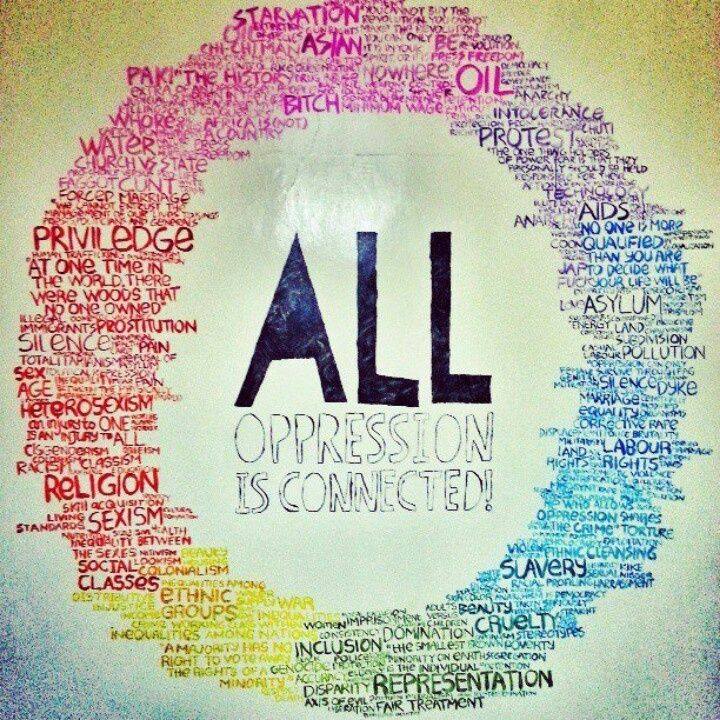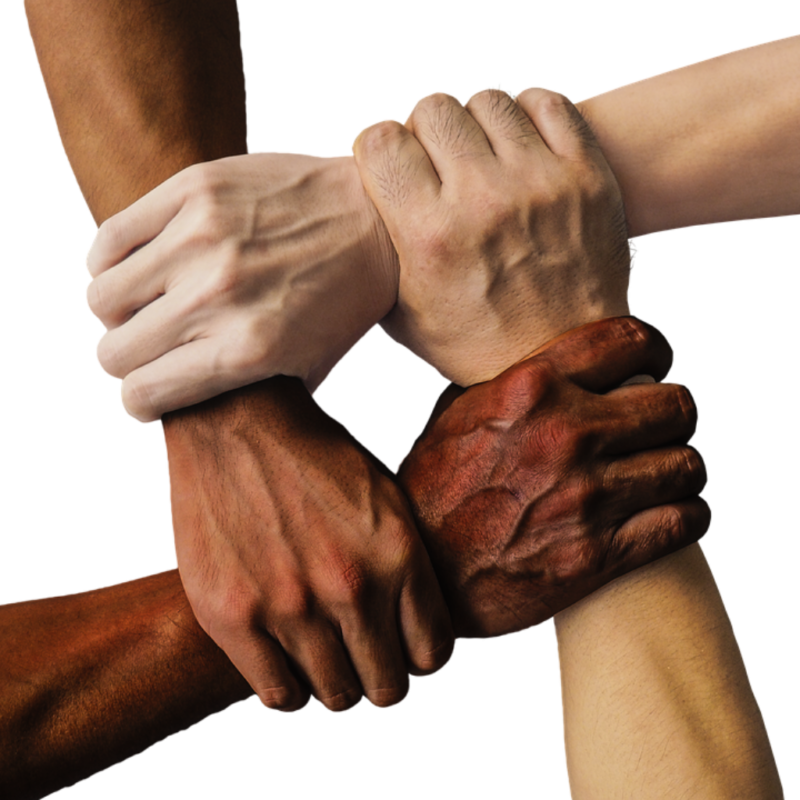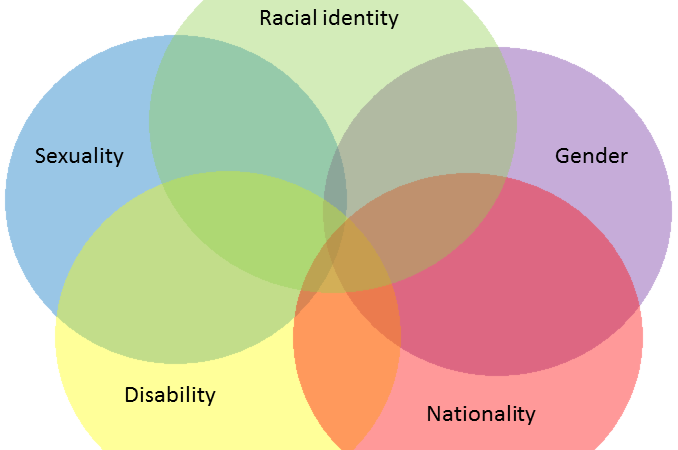My good friend and colleague Scott Allen has been doing some very deep reflection and writing on an important subject: the growing concept of intersectionality. In the USA and elsewhere, more and more we are seeing the influence of cultural Marxism. We are dividing people into aggrieved groups—blacks, LGBT, Hispanics, women, etc—and then subdividing even further. Scott has written on these things here and here.
Merriam-Webster defines intersectionality as: “the complex, cumulative way in which the effects of multiple forms of discrimination (such as racism, sexism, and classism) combine, overlap, or intersect especially in the experiences of marginalized individuals or groups.” In other words, if blacks are oppressed, and women are oppressed, a black woman experiences oppression in both dimensions. Add homosexuality to the mix, and a black lesbian is subject to three kinds of oppression or discrimination.

Intersectionality was popularized by civil right advocate and lawyer, Kimberlé Crenshaw. Adia Harvey Wingfield writes that Crenshaw “introduced the theory of intersectionality, the idea that when it comes to thinking about how inequalities persist, categories like gender, race, and class are best understood as overlapping and mutually constitutive rather than isolated and distinct.”
In other words, society is encouraged to subdivide and frame one’s identity at the narrower point of the intersection. No longer is it simply black and white, straight and homosexual, men and women. Now, a black lesbian is differentiated from a white lesbian. An Hispanic, homosexual male is a different class of person from a transgender Asian.
Instead of a framework that unites people, we are witnessing divisions of people into smaller and smaller aggrieved groups. This is the application of cultural Marxism and, tragically, marks the rise of a new tribalismץ
Intersectionality is rooted in cultural Marxism
Recently, I listened to a piece on National Public Radio that pitted two women, and the groups they represented, against each other. Both were representing Hispanic LGBT women. Both recognized their distinction from white LGBT women or black LGBT males. But these two women and the groups they represented were divided once again over the issue of tactics. One group was composed of non-violent Hispanic LGBT women representing their intersectional community. The other took a more activist, in-your-face stand, even condoning the use of force.
 Again, this intersectional division of fellow human beings is the logical end of cultural Marxism. (Or, on the other hand, maybe even these divisions don’t represent the final intersectional divide. Perhaps the activist group will divide over the acceptable use of violence, one to condone murder of their opponents, the other to draw the line of acceptable violence short of murder.)
Again, this intersectional division of fellow human beings is the logical end of cultural Marxism. (Or, on the other hand, maybe even these divisions don’t represent the final intersectional divide. Perhaps the activist group will divide over the acceptable use of violence, one to condone murder of their opponents, the other to draw the line of acceptable violence short of murder.)
What unites people in the intersectionality framework is oppression. They are all oppressed. The oppressors are white, European-ancestry males. Herein is the new tribalism.
The Bible does not divide people into aggrieved communities. It does not build one’s identity on race or sexual orientation. Rather, the Bible sees our primary identity in our humanity. Each of us, as an individual, is imago Dei, made in the image of God. This reality—a common humanity—precedes even the large gap the Bible places between God’s covenant people and those outside that company. We are all first and foremost children of God. And yet, at the same time, the Bible recognizes the wonder of a unique individuality that transcends the new intersectionality.
Our primary identity is in our humanity. In this we are all equal and are to be treated with respect and dignity. Our diversity is not to divide us but to be celebrated in all its wonder. This understanding is derived specifically from the nature of the Creator.
Our humanity is rooted in the nature of God
God is both Unity and Diversity. He is the Trinitarian God. In the Godhead we find unity without uniformity and diversity without superiority. When God made the human family, he made us like Himself.
UNITY WITHOUT UNIFORMITY
DIVERSITY WITHOUT SUPERIORITY
Writer and researcher Elizabeth C. Corey affirms this in her article at First Things, The First Church of Intersectionality.
One of my African-American colleagues was recently asked to give an interview about what it felt like to be a black professor at a largely white university. He refused. As he said, “I don’t identify as black.” The student who had approached him was perplexed, because the professor is indisputably black. But he was making a point that should be underscored: He does not choose to allow his membership in a particular racial group to determine who he is. He is not in denial about being black; he’s well aware of his skin color and origins. But he sees himself through other characteristics: He is a prolific writer, a religious person, a father.
Genesis 1:26-27 affirms that all human beings are made in the image of God. Whatever else that includes, it means that as human beings we have unity as God-image bearers, and we have glorious diversity in His image as well. We exhibit, at the same time, unity without uniformity, diversity without superiority.
 Acts 17:26 affirms that we have one blood in our veins: “And He has made from one blood every nation of men to dwell on all the face of the earth, ….”
Acts 17:26 affirms that we have one blood in our veins: “And He has made from one blood every nation of men to dwell on all the face of the earth, ….”
Revelation 7:9 celebrates this great diversity of peoples and nations united in one kingdom:
After this I looked, and there before me was a great multitude that no one could count, from every nation, tribe, people and language, standing before the throne and before the Lamb.
It seems to me that this is the more helpful framework for our discussion. It reflects both the nature of God and the nature of His creation, including our own nature as human beings.
The Latin phrase e pluribus unum—out of many, one—captures the counter point of intersectionality, the radical action of living out the concept of unity in diversity.
- Darrow Miller







2 Comments
OLUSEGUN OWOPETU
October 9, 2017 - 9:48 amINTERSECTIONALITY, THE NEW TRIBALISM
Thanks again for this wonderful piece. My strongest take-away for personal digestion believers are equipped -when we allow the Spirit of God to direct our lives – “living out the concept of unity in diversity” is a convenient thing to do.
I love this wonderful statement, “unity without uniformity, diversity without SUPERiority.
Diversity without superiority -as in Godhead. What a life of humility for us to accept for our deep inner belief and a rule to live by.
The fallen man -humanity cannot come to terms with this concept -the LORD God so powerful, the creator of all things that He is the example of “diversity without superiority” Not surprising then that when the LORD Jesus rose from the grave He said “…Do not be afraid, Go and tell My brethren to go to Galilee, and there they will see Me” Matt 28:10 (NKJV).
Let us live like our Saviour – enough of intersectionality…titles that keep away the flock from their leaders.
admin
October 10, 2017 - 3:52 pmThanks for sharing such a thoughtful reply, Olusegun. And for reading our material!
Blessings,
Gary Brumbelow